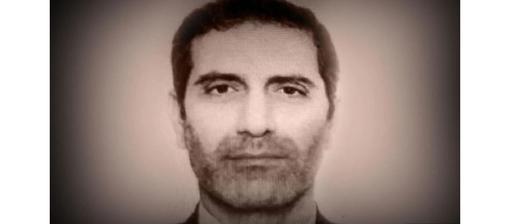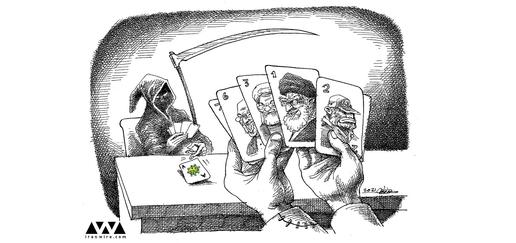The trial of the former Iranian diplomat Asadollah Asadi in Belgium is due to conclude next week. Asadi is charged with planning an attack on a rally of opponents of Islamic Republic in Europe. After the judgement was delayed last week, Goedele Franssens, an investigative judge and spokesperson for Court of First Instance in Belgian city Antwerp, has confirmed to IranWire: “The judgement is expected on February 4.”
Belgian prosecutors first charged Asadi in Octover 2018 with planning a bomb attack at an event by the National Council of Resistance of Iran (NCRI) in Paris. Former officials from the EU, U.S and Arab countries such as NCRI leader Maryam Rajavi were expected to attend. For his alleged part in the plot, Asadi could face up to 20 years in jail, with no possibility of applying for parole for at least 15 years.
Three other people have been charged in connection with the plans. Nassimeh Naami and Amir Saadouni, a Belgian couple with Iranian heritage, were arrested by Belgian police while driving to France with half-a-kilo of TATP explosives and a detonator, according to France 24. According to the Middle East Eye, Asadi is believed to have brought the explosives from Tehran to Vienna on a commercial flight and handed it to Naami and Saadouni along with 11,710 euros at a restaurant in Luxemburg, according to DW. A fourth person, Mehrdad Arefani, has also been arrested, and all four are charged with attempting to mount a terrorist attack. The Belgian prosecutors are demanding 18 years of prison to Naami and Saadouni and 15 years for Arefani.
According to French officials, Asadi, who was the third counselor at Iran’s embassy in Vienna, Austria, acted on behalf of Tehran and played a vital role in the planned attack. That has been denied by Asadi’s lawyer, Dimitri de Beco, as the French newspaper L'Orient-Le Jour reports.
Explaining why Asadi did not appear in court in November, de Beco had said: “He respects this court, but as he considers that he should benefit from his immunity, the court is not authorized to judge him.”
Asadi was first arrested in the German town Aschaffenburg in 2018 and was quickly handed over to the Belgian authorities. He was stripped of his diplomatic immunity and had been awaiting trial ever since. Asadi denies all charges and Tehran has called the case a “false flag” run by NCRI and its political arm Mujaheedin-e Khalq, MEK. “This is a complicated trap,” Saeed Khatibzadeh, a spokesman for Iran’s foreign ministry, said in January, according to Medium. “It is a complex trap designed for by the Mujahedin-e Khalq.”
Threatened with Retaliation
The case has attracted attention around the world due to the involvement of the Iranian state. Georges Henri Beauthier, who represents NCRI in the case, has previously said: “We have irrefutable proof that the Iranian state gave orders from Tehran and authorized the death of thousands of people.”
However, how coordinated the attack was is a matter of dispute. The former French ambassador to Tehran, Francois Nicoullaud, who is considered an Iran expert, told AP that President Hassan Rouhani learned about the attack when he was visiting the EU to gain support for the cancelled Iran nuclear deal – and that he was surprised to hear about it.
"Visiting Europe at the time, he (President Hassan Rouhani) was absolutely furious to learn about this intelligence service operation, on which he hadn't been consulted,” Nicoullaud told. In contrast, Belgium’s state security service (VSSE) has a different opinion.
“The attack plan was conceived in the name of Iran and under its leadership. It was not a personal initiative by Asadi,” Jaak Raes, head of the VSSE, said in a letter to the prosecutor dated February 2, 2020, according to Reuters.
Back in October last year, Reuters revealed that Asadi had alluded to retaliation by unidentified groups if he was found guilty. Belgian police documents state that Asadi told them that armed groups from several countries such as Iraq, Lebanon, Yemen, Iran, and Syria were following the case closely and would be “watching from the sidelines to see if Belgium would support them or not”. The police interpreted this as a threat.
But Asadi’s lawyer insisted otherwise. “It is absolutely not a threat of retaliation,” de Beco told Reuters in October. “If it’s understood that way, it’s a misinterpretation. He will explain the sense of his remarks to the court.”
























comments